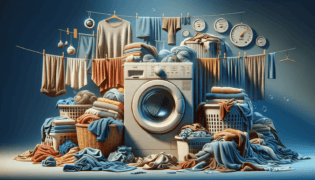

Written by: Settings King
Last updated:

Knowing if a microwave is leaking radiation involves checking for physical damage, listening for unusual noises, and using a microwave leakage detector. Microwaves are designed to contain radiation, but over time and with use, wear and tear can compromise their integrity. It’s crucial to know how to identify potential leaks to ensure your appliance is safe to use.
Quick summary
At Setting King, we give our trusted advice to ensure your appliances are safe and effective. Microwave radiation is a type of non-ionizing radiation used to heat food. Although designed to be contained within the microwave, damage or faulty seals can lead to radiation leakage. Recognizing the signs of a leaking microwave can protect you from unnecessary exposure.
Begin by examining your microwave for any signs of damage. Check the door seal, hinges, and latch for any wear or deformities. These components are critical in keeping the radiation within the oven. Any visible cracks, warping, or corrosion could be a sign that your microwave is no longer sealing properly.
Operate your microwave and listen attentively. Unusual noises, such as buzzing or crackling sounds that are not typical of your microwave’s normal operation, can indicate an internal issue that might lead to radiation leakage.
For a more precise assessment, consider using a microwave leakage detector. These handheld devices are available at most home improvement stores and online. They’re designed to detect levels of radiation around the microwave’s seals and doors. Follow the manufacturer’s instructions carefully when using one to test your appliance. If the detector indicates high levels of radiation, it’s time to consult a professional for repair or consider replacing the unit.
Preventing leaks starts with proper care and maintenance of your microwave. Here’s our trusted advice at Setting King:
Identifying and preventing microwave radiation leakage is essential for kitchen safety. By conducting regular inspections, listening for unusual noises, and utilizing a microwave leakage detector, you can ensure your microwave is functioning safely. Remember, if you suspect your microwave is leaking radiation, it’s crucial to take immediate action by consulting a professional or considering a replacement. With Setting King’s trusted advice, you’re equipped to keep your microwave safe and efficient, protecting yourself and your household from potential radiation exposure.